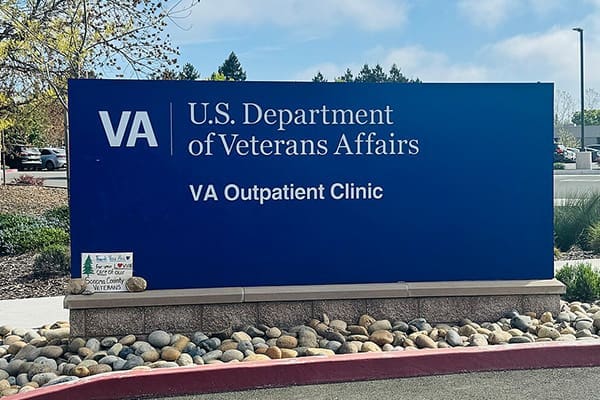
The Department of Veterans Affairs (VA) has already felt the effects of executive actions and cuts made by the Department of Government Efficiency (DOGE). Some people within the VA worry these changes may have wide-ranging effects on veterans’ health care. Internal emails obtained by ProPublica paint a picture of the chaos the cuts have caused within the VA.
VA Secretary Doug Collins believes the reforms may help to refocus priorities on veterans. But the emails obtained by ProPublica suggest the staff already sees negative impacts on veterans’ programs. VA staff also worries that further cuts will make things worse.
What Could Cuts to the VA Do?
The U.S. House of Representatives recently passed a bill covering budgets for veterans. It includes $300 billion in mandatory funding for veterans’ benefits and about $150 billion in discretionary spending. In comparison, the VA had a budget of just over $300 billion in 2024. But some of the bill’s provisions may dramatically increase out-of-pocket costs for veterans.
Additionally, some reports suggest other significant changes to the VA. The changes already made by DOGE may have lasting effects on veterans. VA staff have noted that rumored cuts may result in:
- Increasing healthcare costs by shifting care to community-based healthcare organizations
- Laying off staff and closing facilities
- Reducing cancer research
- Shutting down monitoring and support services
Secretary Collins has disputed several possible effects of the cuts, and it’s important to note that none of them have been finalized. But internal emails obtained by ProPublica show the VA staff worries about the impact on veterans’ care.
Staff Reductions and Facility Closures
More than 9 million veterans depend on the VA for healthcare services. The VA employs around 500,000 people in care and administrative roles. Most of these employees work in the VA’s 170 hospitals and roughly 1,200 clinics nationwide.
In a March 2022 report, the VA Asset and Infrastructure Review Commission recommended closing some VA locations, and other legislative committees have suggested shifting care to private hospitals. A DOGE report identified 17 VA hospitals it would like to close. As ProPublica noted, the DOGE report suggested “dozens more” potential hospital closures.
Staff reductions may also occur if cuts to the VA take place. The VA notes the administration has set a goal of a 15% reduction in staff. It estimates that over 80,000 jobs would be eliminated to meet this goal. Some accounts have stated that 2,400 jobs of those individuals in the trial phase of their VA career have already been cut.
Another possible change that has been reported is increasing the number of patients a provider sees each day. All of these changes may mean longer wait times to see doctors. These changes could be harmful to patients, especially those with cancer.
Treatment and Research Cuts Affecting Veterans With Cancer
Roughly 56,000 veterans receive a cancer diagnosis from a VA facility each year. Data shows veterans are 20% – 40% more likely to be diagnosed with cancer than the general population. Some of the most common diagnoses include prostate, lung and bladder cancers. Additionally, 30% of individuals diagnosed with mesothelioma are veterans.
Importantly, each new case is tracked in the Veterans Administration Central Cancer Registry (VACCR). This database is a clearinghouse for information on diagnoses and treatments. The executive branch notes that canceling the VACCR and other contracts could save the VA $2 billion annually.
The internal emails ProPublica acquired show major concerns from doctors. Chief among those concerns is the impact on enrolling patients in clinical trials. A cancer registry, like the VACCR, is needed to register people in clinical trials.
As it stands, many clinical trials have been paused, which means more than 1,000 veterans have lost access to emerging, cutting-edge treatments, according to reports. Some paused trials cover cancer treatments, including those for lung cancer.
Where Does the VA Budget Go From Here?
The reconciliation bill (specific legislation that covers budgets) passed the Senate’s vote on July 1. Dubbed the “One Big Beautiful Bill Act,” it returned to the House of Representatives, which passed the bill on July 3. President Trump signed it into law on July 4.
Veterans have spoken up about the cuts to the VA. As the Associated Press reports, some believe the VA is overdue for reform. Others note that significant cuts could have severe consequences for veterans.
This is an ongoing story. The exact roadmap for reforming the VA is unclear, and goals beyond cutting costs have been vague. Veterans concerned about the current administration’s policies can reach out to their representatives in Washington, D.C.




